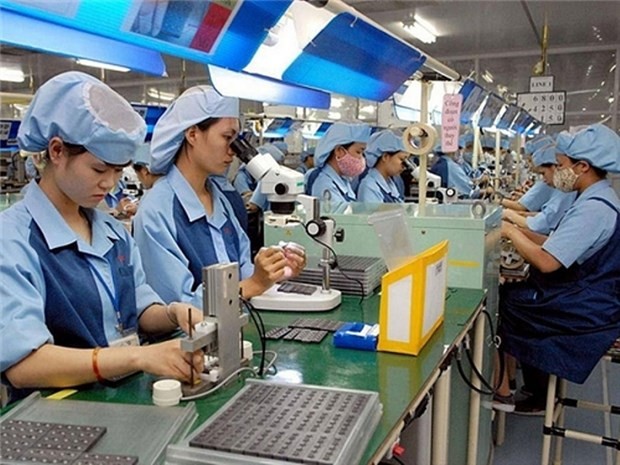
Hanoi builds synchronous policies to draw foreign investment
Latest
 |
| Illustrative image (Photo: VNA) |
The event was co-hosted by the municipal Department of Industry and Trade, the Vietnam Trade Office in Singapore, the Singapore Chinese Chamber of Commerce and Industry (SCCCI) and the Vietnam Chamber of Commerce and Industry (VCCI).
Speaking at the event, Vice Chairman of the municipal People’s Committee Nguyen Manh Quyen affirmed that in order to draw foreign investment capital, Hanoi has been launching synchronous policies and mechanisms such as stepping up the construction of infrastructure in industrial zones and clusters.
Singapore currently ranks second among 140 countries and territories investing in Vietnam and is also the second biggest investor in Hanoi, mostly in real estate, construction, lodging and dining services, science, technology and education, he said.
Hanoi will help investors learn about laws, policies and investment procedures; and connect with foreign partners, he added.
Since 1986, the capital city has drawn about 61.4 billion USD in FDI. In 2022 alone, the figure reached 1.77 billion USD, up 15% annually, placing the city at the sixth place nationwide in terms of FDI attraction.
So far, Singapore has poured 11.4 billion USD into Hanoi, including roughly 616 million USD last year, the highest among partners, accounting for 34.7% of the total capital in the city.
VCCI’s Permanent Vice President Nguyen Quang Vinh said Hanoi exported goods worth 615 million USD to Singapore last year, or 3.6% of the total, mostly machinery, tools and spare parts making up 46.7%, wood and wooden furniture 3%, electronics and accessories, computers and components 2.5%.
SCCCI President Kho Choon Keng said SCCCI groups about 5,000 member enterprises operating in various areas. The delegation is accompanied by over 30 major Singaporean groups and firms wishing to seek cooperation opportunities with Hanoi partners.
He added that a number of Singaporean companies seek opportunities in infrastructure, production, logistics, transport, education, tourism, finance and agriculture in Vietnam and Hanoi in particular.
In the coming time, Singaporean firms will expand cooperation in new realms such as sustainable development, renewable energy and digital economy, he said.
Singaporean business representatives suggested Hanoi upgrade infrastructure in industrial parks, simplify administrative procedures, and step up the adoption of modern technology in handling administrative procedures related to business registration, taxation, insurance and land.
Hanoi firms wished to connect with Singaporean counterparts in developing new, eco-friendly and energy-efficient products while tapping advantages brought about by free trade agreements to which Vietnam and Singapore are members.





















